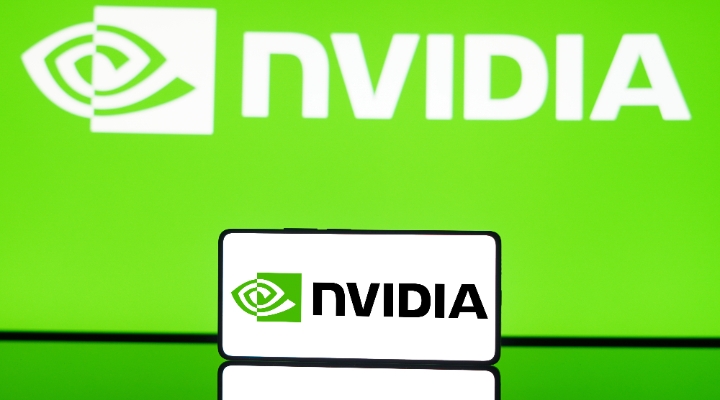
Depending on your view, artificial intelligence will either be the greatest invention since sliced bread, or it’s a dangerous tool that will inevitably cause the downfall of humanity.
Either way, we can agree the disparity means investing in AI, even if it is potentially overhyped, will always bring with it a certain level of risk.
But while you might think AI is a futuristic niche only accessible to a fanatical few, you probably already hold quite a few of the largest players in your portfolio. What’s more, they probably account for a fair bit of your retirement funds.
Leading The Pack
A few weeks ago, we wrote about the leaders in the AI arms race, and a Morningstar report found Microsoft (MSFT) to be ahead of the curve.
The company made its third round of investments in OpenAI in January this year – famed for its artificial intelligence tool ChatGPT which has captured both investors' and the public’s attention. The deal is believed to be worth $10 billion for 49% of the company.
Microsoft is also one of the biggest companies in the S&P 500 so by extension it also plays a big part in our retirement funds. I can confirm that Microsoft is the second biggest holding in my pension (the default option with an auto-enrolment provider), accounting for 3% of the portfolio, behind fellow AI beneficiary Apple (AAPL).
As expected, names like Amazon (AMZN), Nvidia (NVDA) and Alphabet (GOOGL) all feature too – after all, they’re all the biggest name in the Morningstar Global Markets index.
As we’ve covered, Nvidia recently soared to new hights too, riding the AI wave and hitting a $1 trillion valuation. This also drove Morningstar’s decision to raise the company's fair value estimate on the stock from $200 to $300 at the end of May. Our analysts believe the company will be a dominant force in AI training and inference for generative AI.
So far so good. AI seems to have added a second wind to tech companies in 2023 after a bruising 2022. However, we have recently seen what a tech winter can do to a portfolio (Morningstar US Technology lost 25% in 2022 in dollar terms, and stock-of-the-moment Nvidia lost 50%). Plus, investors can get too easily excited by a buzzword.
This knee-jerk sentiment towards "emerging technology" does not exist in a vacuum, but AI risk is probably not as significant as you might think – despite what the names in your portfolio might indicate.
First of all, developing AI is somewhat of a "moaty" exercise. AI is an expensive proposition, and our analysts believe this will serve to limit competition. It takes the right people, hardware and infrastructure investment – most of this is most easily found at "hyperscalers" like Microsoft and Alphabet.
That’s not to say there won’t be competition. Other software vendors will look to replicate Microsoft's moves – striking partnerships, building their own AI models, and/or using APIs to incorporate AI into their own products. For chip designer Nvidia, intensified competition will come from AMD, Intel and chip startups, as well as the large data centre customers themselves, which are increasingly designing their own chips to handle AI workloads.
Barely Moving the Needle
Moreover, in terms of revenues, these large companies aren’t all fully AI-driven.
For example, about one quarter of Microsoft’s revenue is derived from Office licenses, and another 18% comes from its Windows software (which has an 83% market share for PC operating systems).
Our analysts Dan Romanoff and Jack Keegan explain that for Microsoft, the OpenAI partnership hasn’t even been baked into our base-case estimates for Microsoft, which we currently view to be modestly undervalued.
"Given the immense potential for productivity improvements, we can envision an upside scenario that is 5%-10% above our fair value estimate, thanks to higher AI-bolstered revenue growth. Still, we caution investors on the AI hype for Microsoft as the company's immense size makes it difficult for any new product to dramatically move the needle on valuation, in our view," they say.
"We have not specifically incorporated these factors into our estimates based on the high level of uncertainty attached to AI adoption and exactly what shape unannounced AI solutions might take over the next few years."
We’ve seen this at Apple, too. The company recently revealed its long-anticipated VR headset, VisionPro, and touted its usage of artificial intelligence, such as its transformer models (used in large language models) to power the keyboard autocorrect function, among other uses. Apple has also long incorporated AI into its products to improve efficiency and the user experience.
However, following the product launch, our analysts maintained the company's $150 fair value estimate as they don’t envision it selling enough units to move the needle on its massive valuation, which is still dominated by the far more popular iPhone.
You've Been Warned
Investors have always worried about over exposure to certain industries, companies and themes. In the UK this anxiety has clustered around oil and banks. But tech has been the dominant force in the last 10 years, so people fretting about AI have had plenty of time to adjust to the new digital era.
Is this concern overdone?
Microsoft is nearly 50 years old, Apple isn’t too far behind, and Alphabet is going to celebrate its 25th birthday this September. Naturally, the richest companies are able to cherrypick the startups they like in whatever exciting new fields: driverless cars were the future once and companies seem to have now jumped on the AI train.
This is an example of 21st century capitalism’s dominant forces "picking the winners". What’s the alternative? In the absence of any new method, indices work by weighting the largest companies by market cap. Pension funds try to avoid deviating too much from this to avoid missing out. So the cycle continues.
Is it too much of a stretch to imagine active managers in future offering "alternatives to AI" funds that exclude any exposure to artificial intelligence? That would at least solve the problem of over-concentration. But not the technological challenges we all face.










.jpg)
















